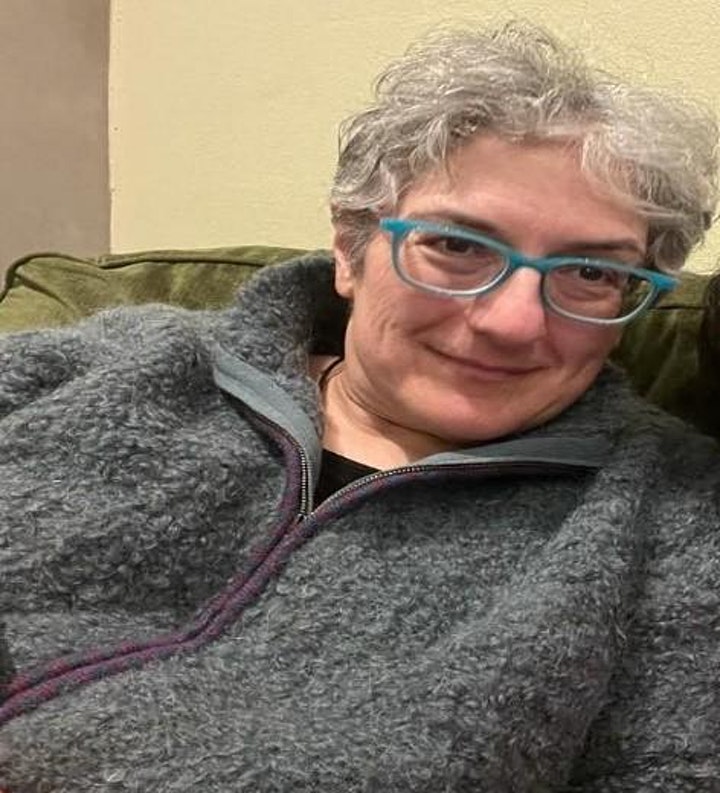Critical Voices Network Ireland (CVNI) is pleased to announce a seminar/workshop, organised in partnership with the Institute for Social Science in the 21st Century (ISS21), University College Cork (UCC), Ireland, the Survivor Researcher Network (SRN), UK, and Asylum Magazine, UK. CVNI are pleased to be working again with the Onlinevents team, who will provide the online platform and support.
This seminar/workshop is the third of four seminars/workshops on critical mental health matters to be presented during February, March and April. See details on www.cvni.ie where the links have been/will be posted soon. Recordings of the workshops will be posted on the www.cvni.ie as soon as possible.
Seminar/Workshop 3:
‘And the activists tell us that meds are evil’: Polarised mental health politics and the struggle for ambivalence. A seminar by Konstantina (Dina) Poursanidou, PhD.
Current mental health politics in the UK- and the Global North at large – is characterised by an acute polarisation when it comes to issues that are particularly contested in the area of mental health, including the nature of ‘mental illness’, psychiatric diagnosis, the effectiveness of drug treatments in comparison to psychotherapy, the problems associated with the use of psychiatric medication, ECT, and involuntary hospitalisation. Social media, Twitter in particular, constitute a pertinent example of the acrimony prevailing more often than not in discussions of these issues among mental health professionals and service users alike – acrimony that at times translates into vicious and abusive personal attacks replacing respectful discussion and debate. Given this intensified polarisation within mental health politics, this seminar will seek to critically discuss two key questions:
a) Why is it essential to listen to and value ambivalent (contradictory) views, emotions and attitudes when it comes to acutely contested issues in mental health? Why is it so critically important to attend to a wide range of experiences and voices – including voices seldom or never heard – and to not discredit unpopular voices and experiences expressed by mental health service users, survivors and practitioners?
b) What does an ambivalent stance towards contested issues in mental health involve in the current political/economic and policy context of mental health care in the UK?
Lastly, the seminar will look at Asylum, the radical mental health magazine as an example of ambivalent mental health activism in the UK. As a member of the magazine editorial group, I will explore our motivations and methods for promoting ambivalence in mental health activism in an attempt to advocate what Felicity Callard, in her 2014 paper in the Journal of Medical Ethics, has called ‘the indispensability of ambivalence’ in debates about psychiatric diagnosis and other controversies in mental health. I will also reflect on the significant emotional labour involved in this endeavour, especially during a time of heightened polarisations in mental health politics.
ORGANISERS:
Critical Voices Network Ireland https://cvni.ie/
The CVNI is a coalition of people with self-experience, survivors, supporters, practitioners, academics, and campaigning and advocacy groups, all interested in a mental health system based on choice, respect, dignity, non-coercion and principles of social justice. The CVNI advocates for a shift away from the current narrow focus on individual pathology in mental health practices, towards approaches which acknowledge and validate the complexity of human distress.
Institute for Social Science in the 21st Century (ISS21) https://www.ucc.ie/en/iss21/
ISS21 is an interdisciplinary research institute for the social sciences in UCC, that seeks to build, sustain and enhance research on social, economic and cultural issues. ISS21’s Disability and Mental Health Cluster brings together UCC researchers, academics and practitioners, who set out to explore and challenge understandings and meanings of disability and mental health; to explore the potential of different methodologies/ethical issues in research with people with disabilities and emotional distress; to forge links with advocacy, community activist groups in our research/activities; and to create a space for sharing research with colleagues across different disciplines.
Course Content
Presenter

Konstantina (Dina) is an independent Service User Researcher in mental health. Her doctoral and post-doctoral research has spanned a range of fields including mental health, education, child health, youth justice and social policy/social welfare. She has worked in a number of Universities in England as a Service User Researcher and held a 3-year Postdoctoral Research Fellowship in Patient and Public Involvement and Improvement/Implementation Science at the Service User Research Enterprise in the Institute of Psychiatry, Psychology and Neuroscience, King’s College London. She is a member of Asylum, the radical mental health magazine editorial group, as well as one of the directors of the UK-based Survivor Researcher Network Community Interest Company.


